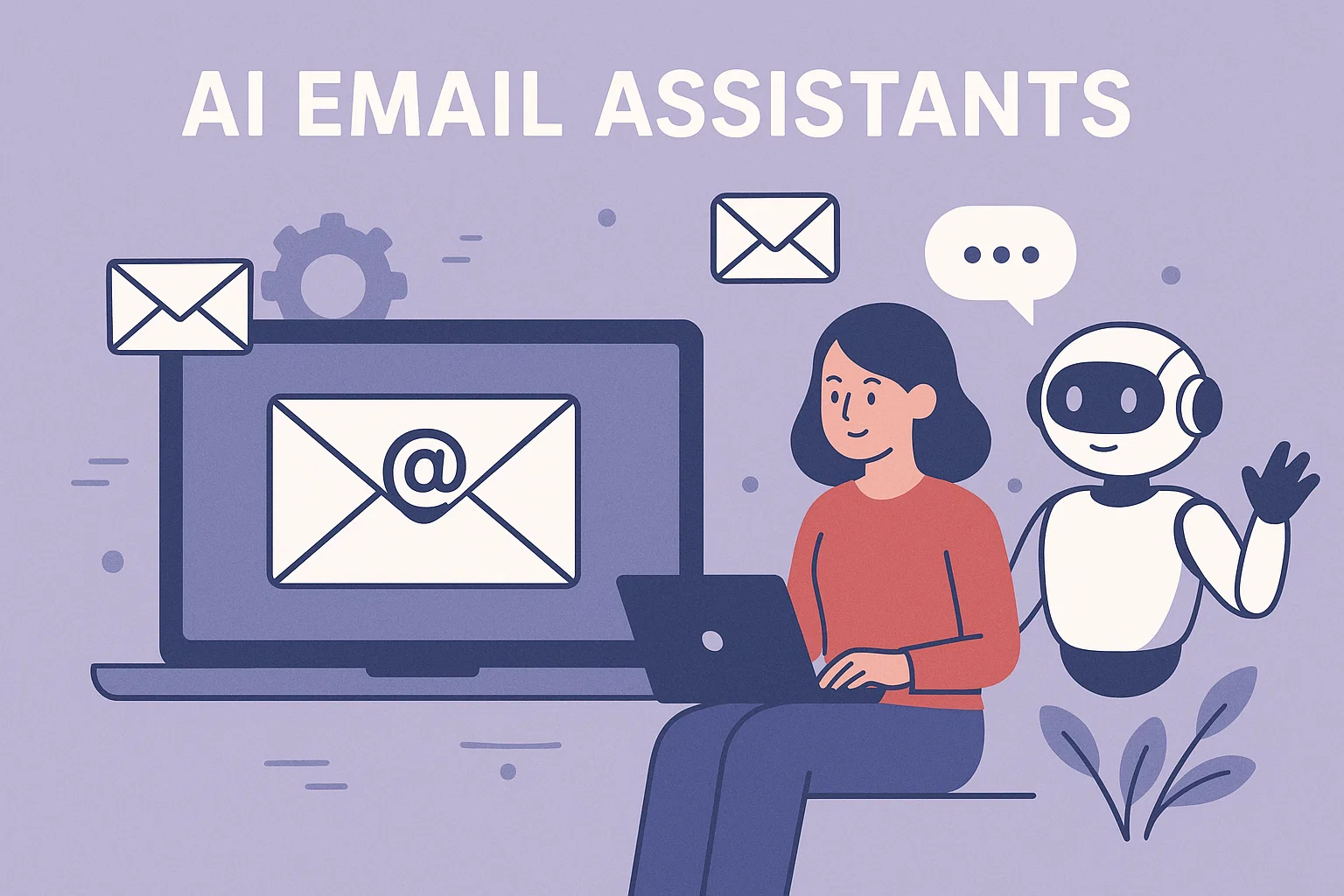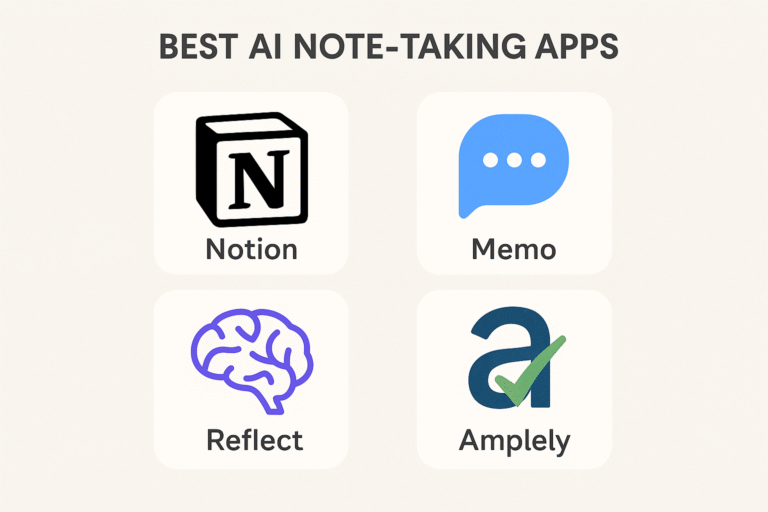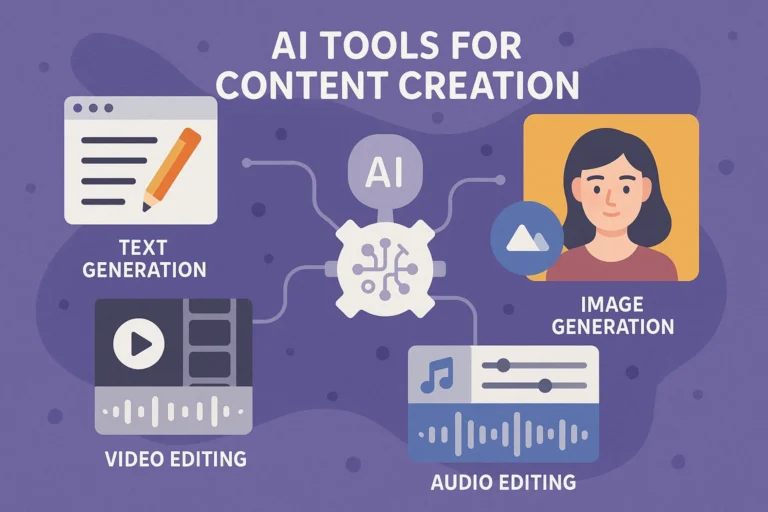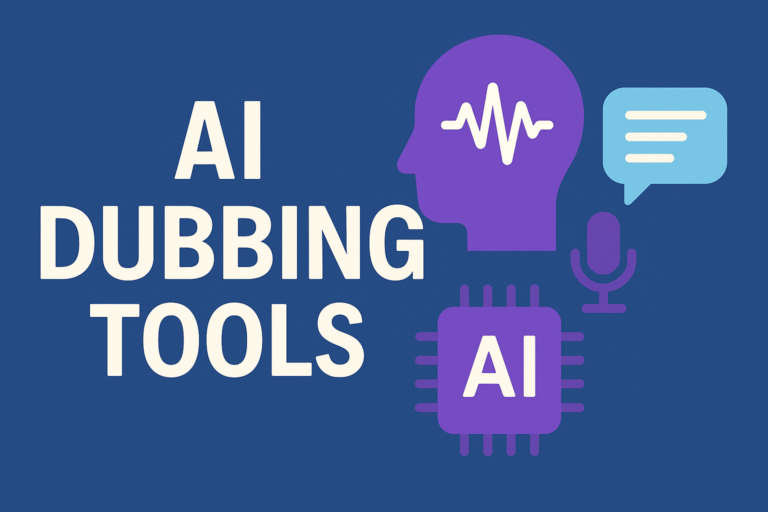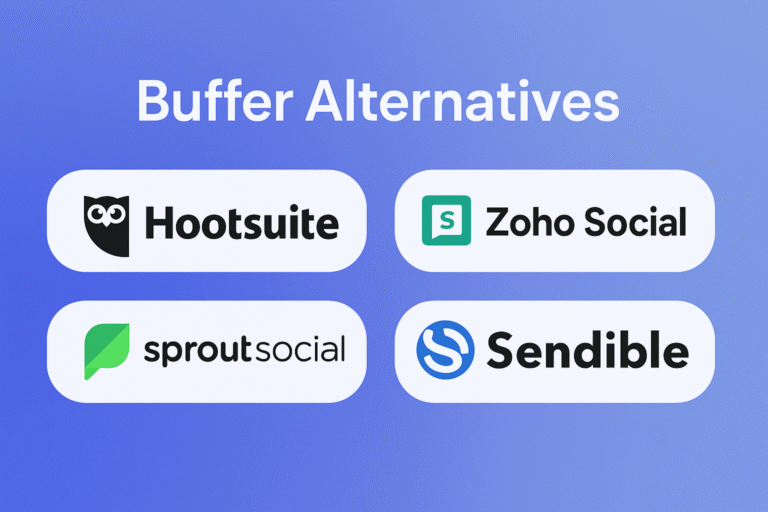Your inbox is killing your productivity. The average business professional spends 28% of their workweek managing email – that’s more than 11 hours per week lost to drafting, reading, organizing, and responding to messages. If you’re running a business, managing clients, or leading a team, this email overwhelm isn’t just an inconvenience – it’s a strategic threat to your growth and success.
Here’s the breakthrough: artificial intelligence has finally evolved to handle email management with human-level sophistication. The right AI email assistant doesn’t just save time – it transforms how you communicate, manage relationships, and drive business results through better email strategies.
After testing over 50 AI email tools and implementing them across different business scenarios, I’ve identified the platforms that actually move the needle. This comprehensive guide will show you exactly which AI email assistants deliver real business value and how to implement them for maximum impact.
Why Traditional Email Management is Holding Your Business Back
Before diving into solutions, let’s examine why conventional email approaches create hidden costs that compound over time. Most businesses treat email as a necessary evil rather than a strategic business tool, missing enormous opportunities for relationship building, sales acceleration, and operational efficiency.
The Hidden Costs of Manual Email Management
Decision Fatigue: Every email requires multiple micro-decisions – tone, length, urgency level, response timing. These decisions accumulate throughout the day, depleting mental energy that should be focused on strategic business activities.
Inconsistent Communication Quality: Without systematic approaches to email creation, message quality varies dramatically based on time pressure, energy levels, and individual writing skills. This inconsistency damages professional relationships and reduces response rates.
Missed Opportunities: Important emails get buried in overflowing inboxes, urgent messages receive delayed responses, and strategic follow-ups never happen. These missed opportunities translate directly into lost revenue and damaged relationships.
Inefficient Context Switching: Moving between email and other business activities disrupts deep work and creative thinking. Studies show it takes an average of 23 minutes to refocus after an email interruption.
Scalability Limitations: As your business grows, traditional email management becomes exponentially more complex. What worked for 50 emails per day fails catastrophically at 200+ daily messages.
The 25 Best AI Email Assistants: In-Depth Analysis and Strategic Applications
Enterprise-Grade AI Email Platforms
1. Shortwave: The Complete Email Transformation
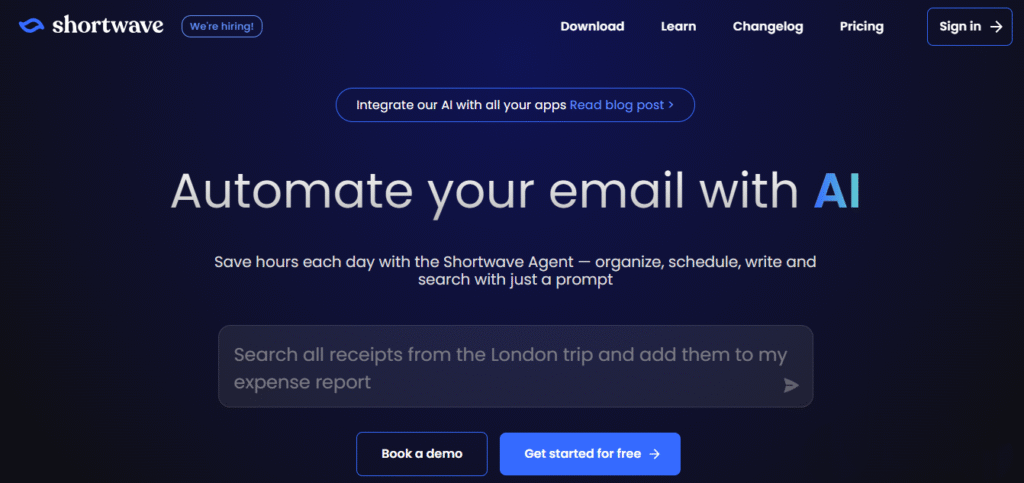
Shortwave represents the future of email management, combining advanced AI with intuitive interface design to create an email experience that actually enhances productivity. Unlike simple AI writing tools, Shortwave reimagines the entire email workflow.
The platform’s AI understands context from previous conversations, allowing it to generate responses that feel natural and personally relevant. This contextual awareness is crucial for maintaining relationship quality while automating routine communications.
Shortwave’s smart bundling automatically groups related emails, reducing inbox clutter and making it easier to manage ongoing projects and conversations. The AI can also predict which emails require immediate attention versus those that can be handled later, helping you prioritize effectively.
Business Impact: Companies using Shortwave report 40-60% reduction in time spent on email management while improving response quality and customer satisfaction scores.
2. MailMaestro: The Professional Communication Expert
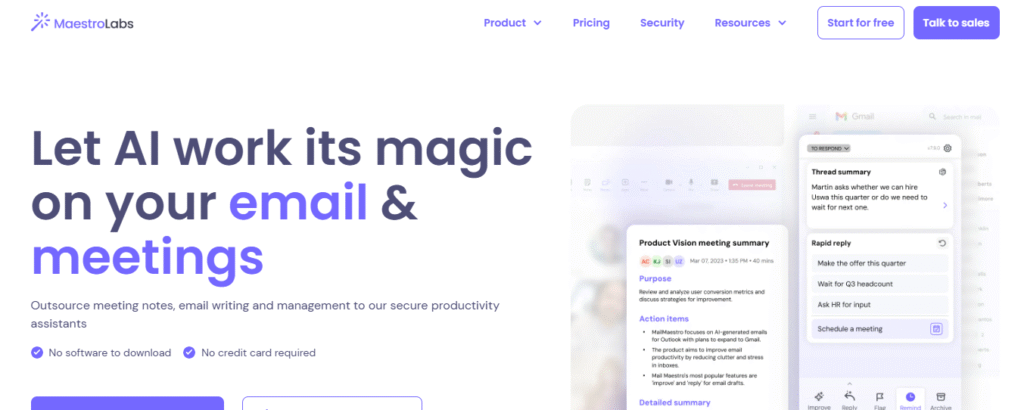
MailMaestro specializes in generating business-appropriate email content that maintains professional standards while reducing drafting time. The platform’s strength lies in its understanding of business communication nuances and cultural sensitivities.
The AI analyzes your writing patterns and adapts to match your personal communication style, ensuring generated emails feel authentic rather than robotic. This personalization is crucial for maintaining relationship quality in automated communications.
MailMaestro’s integration with Outlook and Gmail means you can access AI assistance without disrupting existing workflows or forcing team members to learn new interfaces.
Strategic Advantage: The platform’s template library includes industry-specific email formats optimized for different business scenarios – sales outreach, customer service, project management, and partnership development.
3. Grammarly Business: The Communication Quality Enhancer
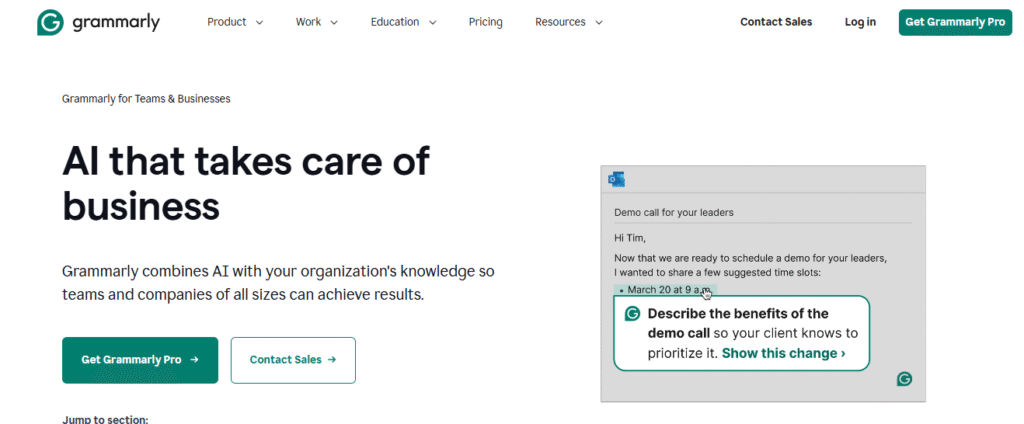
While known primarily for grammar checking, Grammarly’s business AI features transform email quality through advanced tone detection, clarity optimization, and goal-oriented writing suggestions.
The platform’s tone detector ensures your emails convey the intended emotional message, preventing miscommunications that can damage business relationships. This is particularly valuable for sensitive communications like contract negotiations, customer complaints, or team feedback.
Grammarly’s writing insights help identify communication patterns that impact response rates and relationship quality, providing data-driven guidance for improving business communication effectiveness.
Specialized AI Email Solutions
4. Mailbutler: The Smart Extension Solution
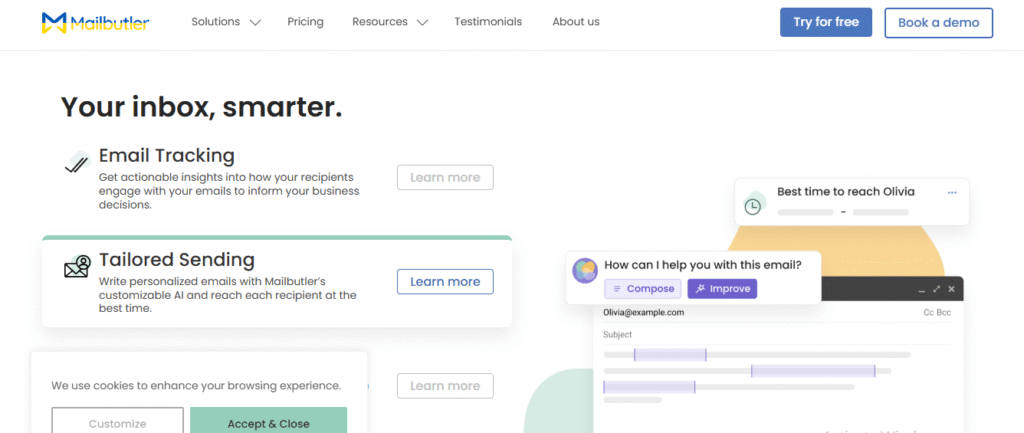
Mailbutler transforms existing email clients into AI-powered communication hubs without requiring platform migrations. This approach is ideal for businesses with established email workflows that need enhancement rather than replacement.
The platform’s Smart Assistant generates contextually appropriate responses based on email content and sender history. The AI learns from your communication patterns, improving suggestion quality over time.
Mailbutler’s email tracking capabilities provide insights into message effectiveness, showing when emails are opened, read, and forwarded. This data helps optimize follow-up timing and message formats for improved response rates.
Implementation Advantage: Because Mailbutler works within existing email clients, team adoption is seamless and doesn’t require extensive training or workflow changes.
5. Boomerang Respondable: The Response Rate Optimizer
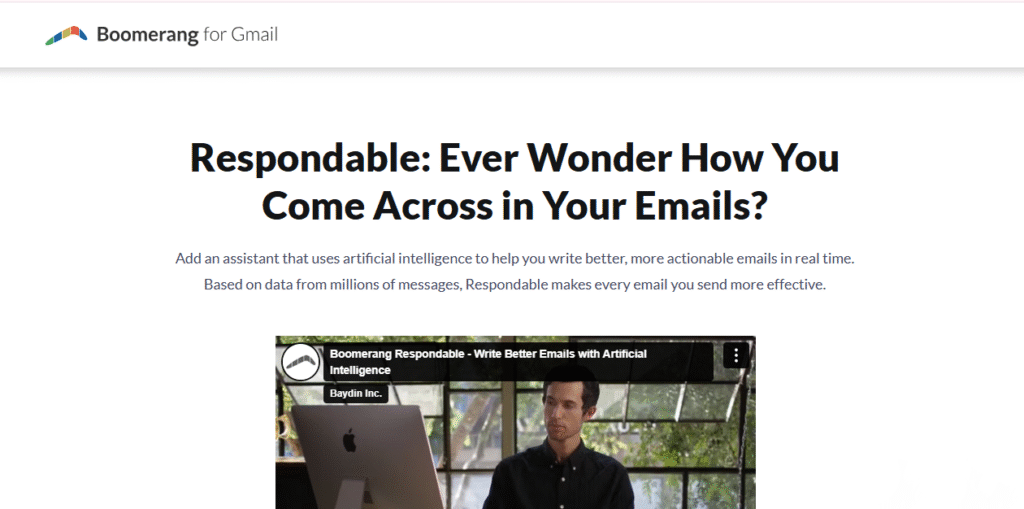
Boomerang’s AI analyzes email content to predict response likelihood, helping you craft messages that actually get replies. This predictive capability is invaluable for sales teams, business development professionals, and anyone whose success depends on email response rates.
The platform’s optimal send time feature uses machine learning to identify when specific recipients are most likely to read and respond to emails. This personalized timing optimization can improve response rates by 20-30%.
Boomerang’s follow-up automation ensures important emails don’t fall through cracks, automatically sending polite follow-ups when expected responses don’t arrive.
6. Crystal: The Personality-Based Communication Tool
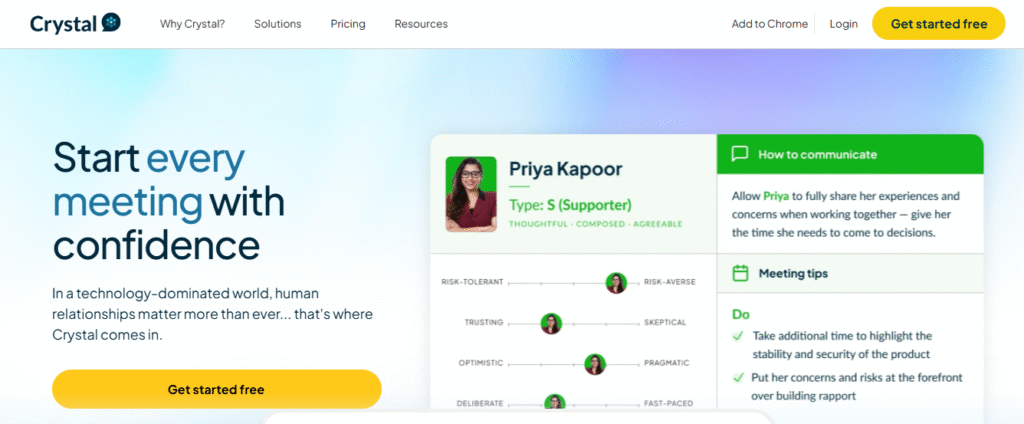
Crystal analyzes recipient personalities based on available online data and suggests communication approaches that resonate with specific individuals. This psychological insight creates more effective business communications.
The platform identifies whether recipients prefer direct or diplomatic communication, detailed explanations or concise summaries, formal or casual tones. This personalization significantly improves message reception and response quality.
Crystal’s integration with major email platforms means personality insights appear automatically when composing emails, making personalized communication effortless rather than time-consuming.
AI-Powered Email Marketing and Automation
7. Mailchimp’s AI Features: The Marketing Integration Solution
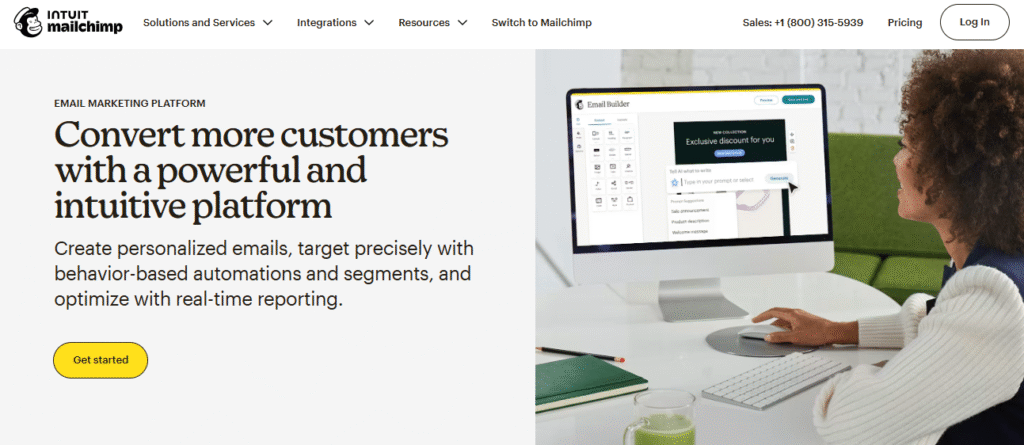
Mailchimp’s AI capabilities extend beyond simple automation to provide strategic guidance for email marketing campaigns. The platform’s Content Optimizer analyzes subject lines, preview text, and message content to predict campaign performance.
The AI’s send time optimization ensures marketing emails reach recipients when they’re most likely to engage, improving open rates and click-through rates across different audience segments.
Mailchimp’s predictive analytics identify which subscribers are most likely to convert, allowing you to prioritize high-value communications and optimize resource allocation.
Business Growth Impact: Advanced segmentation and personalization features can improve email marketing ROI by 300-500% compared to generic broadcast campaigns.
8. ConvertKit’s AI Assistant: The Creator Economy Solution
Designed specifically for content creators, coaches, and online businesses, ConvertKit’s AI understands the unique communication needs of creator economy businesses.
The platform generates nurture sequences that build authentic relationships with subscribers while guiding them through customer journeys. This automated relationship building is crucial for businesses that depend on trust and authority for sales.
ConvertKit’s AI analyzes subscriber behavior to suggest optimal content topics and messaging strategies that drive engagement and conversions.
9. ActiveCampaign’s AI: The Advanced Automation Platform
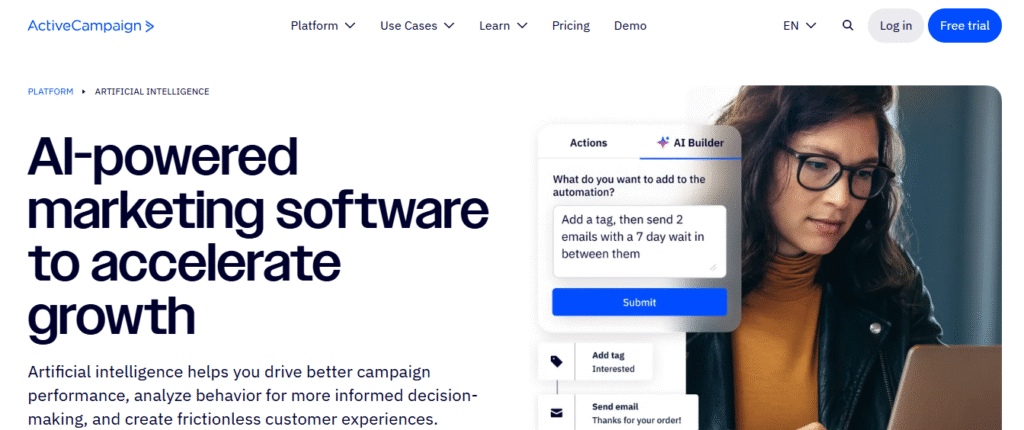
ActiveCampaign combines AI email assistance with sophisticated marketing automation, creating intelligent workflows that adapt based on recipient behavior and engagement patterns.
The platform’s predictive sending optimizes email delivery timing for individual recipients, ensuring messages arrive when engagement probability is highest.
ActiveCampaign’s AI-powered lead scoring identifies prospects most likely to convert, allowing sales teams to prioritize outreach efforts for maximum efficiency.
Productivity-Focused AI Email Tools
10. Superhuman: The Speed-Optimized Solution
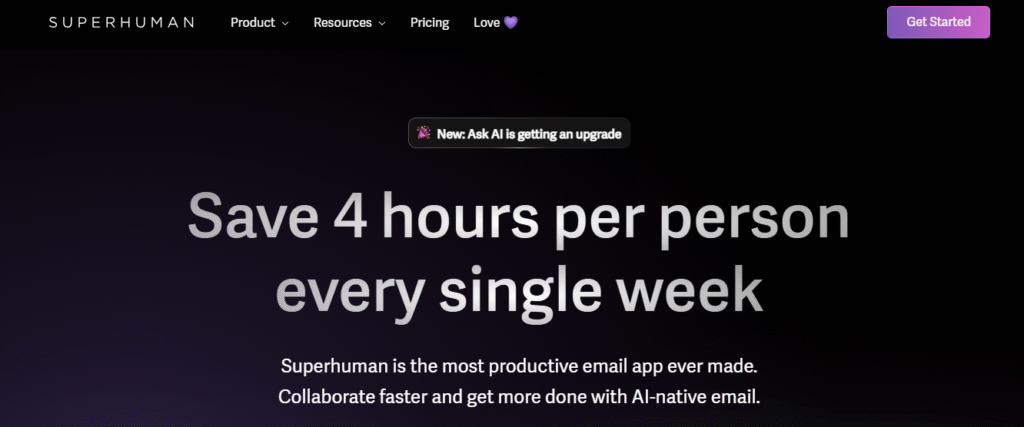
Superhuman combines AI assistance with keyboard shortcuts and workflow optimizations designed for email power users. The platform is built for professionals who process large email volumes and need maximum efficiency.
The AI triage system automatically sorts emails by importance and urgency, ensuring critical messages receive immediate attention while less important communications are batched for later processing.
Superhuman’s AI learns your response patterns and suggests quick replies that maintain personal voice while reducing typing time by 70-80%.
User Profile: Superhuman is ideal for executives, sales professionals, and anyone who processes 100+ emails daily and values speed over cost considerations.
11. Mixmax: The Sales Communication Accelerator
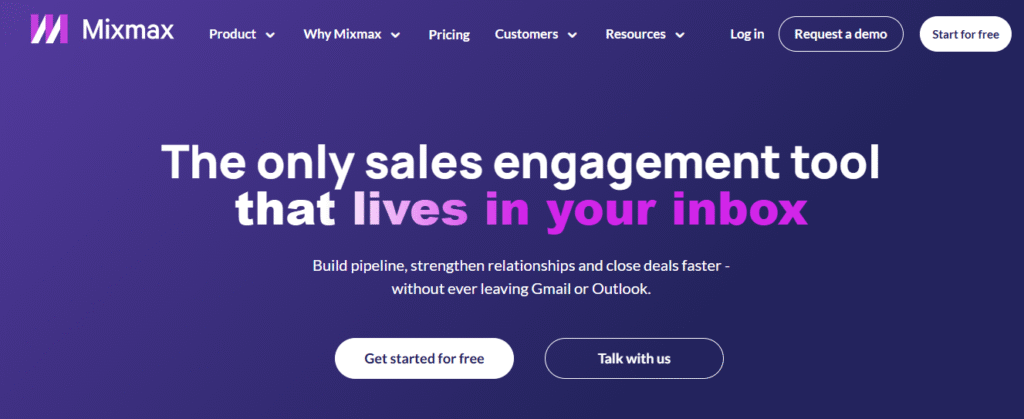
Mixmax specializes in sales email optimization, using AI to improve response rates, track engagement, and automate follow-up sequences. The platform is designed specifically for revenue-generating email communications.
The AI analyzes successful sales emails to identify patterns that drive responses and conversions. This pattern recognition helps improve email effectiveness across entire sales teams.
Mixmax’s integration with CRM systems ensures email activity automatically updates customer records, maintaining accurate relationship history without manual data entry.
12. Outreach: The Enterprise Sales Solution
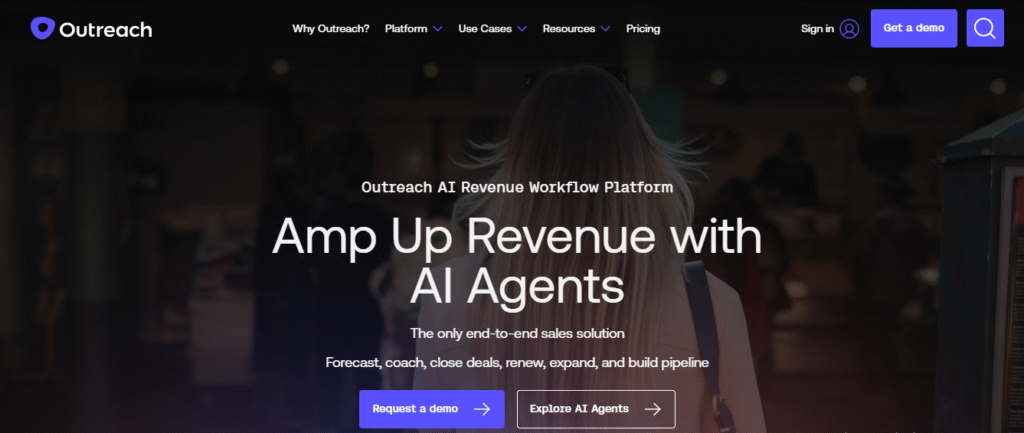
Outreach provides AI-powered sales communication at enterprise scale, managing complex outbound campaigns while maintaining personalization and compliance requirements.
The platform’s AI optimizes email sequences based on recipient behavior, automatically adjusting follow-up timing and messaging based on engagement patterns.
Outreach’s analytics provide deep insights into what communication approaches work best for different customer segments, allowing sales teams to continuously improve effectiveness.
Innovative AI Email Features and Capabilities
13. Ellie: The Learning AI Assistant
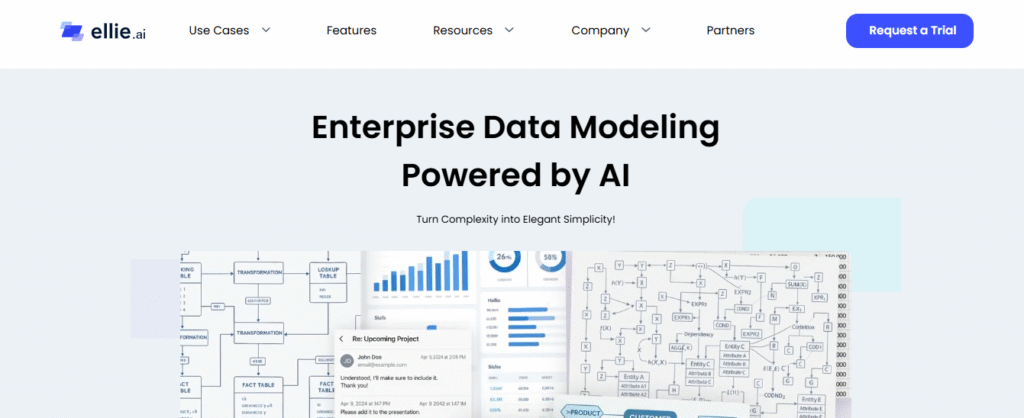
Ellie learns your writing style by analyzing sent emails, creating AI-generated responses that authentically match your communication voice. This learning capability ensures automated emails maintain personal authenticity.
The platform works across multiple email clients and adapts to different communication contexts – professional meetings, casual check-ins, customer service responses.
Ellie’s multilingual capabilities make it valuable for businesses with international operations or diverse customer bases.
14. Flowrite: The Professional Template System
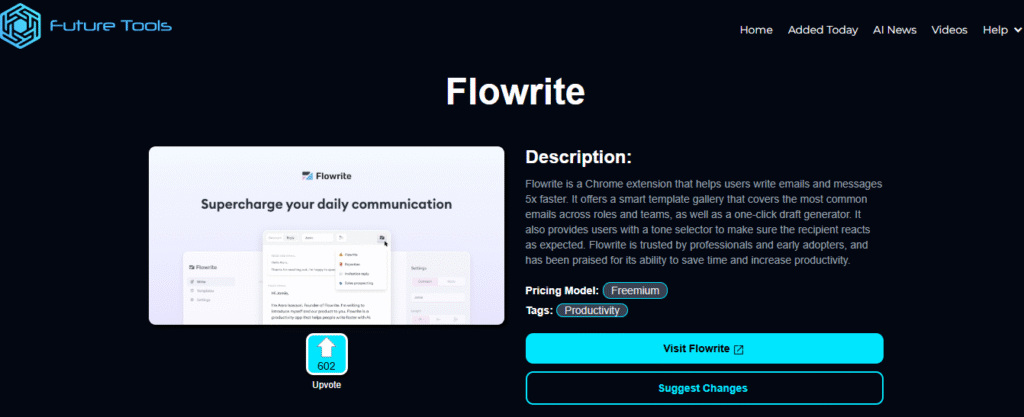
Flowrite offers pre-built templates for common business communications while allowing AI customization for specific situations. This combination of structure and flexibility streamlines professional email creation.
The platform’s tone adjustment features ensure emails match the appropriate level of formality for different recipients and contexts.
Flowrite’s integration capabilities work with existing business tools, allowing AI email assistance without disrupting established workflows.
15. Rasa: The Custom AI Solution
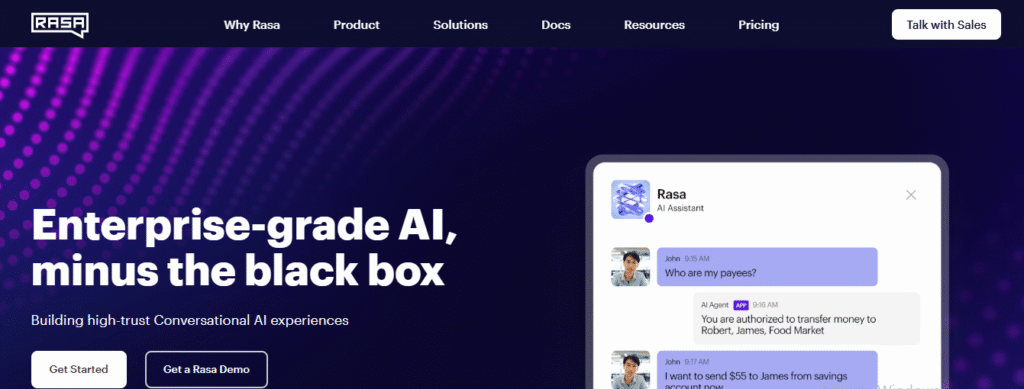
For businesses with unique communication requirements, Rasa provides framework for building custom AI email assistants tailored to specific industry needs or business processes.
This customization capability is valuable for companies with specialized vocabularies, compliance requirements, or unique customer communication patterns.
Rasa’s open-source approach allows businesses to maintain control over AI training data and customize functionality as needs evolve.
Emerging AI Email Technologies
16. Claude for Email: The Advanced Reasoning Assistant
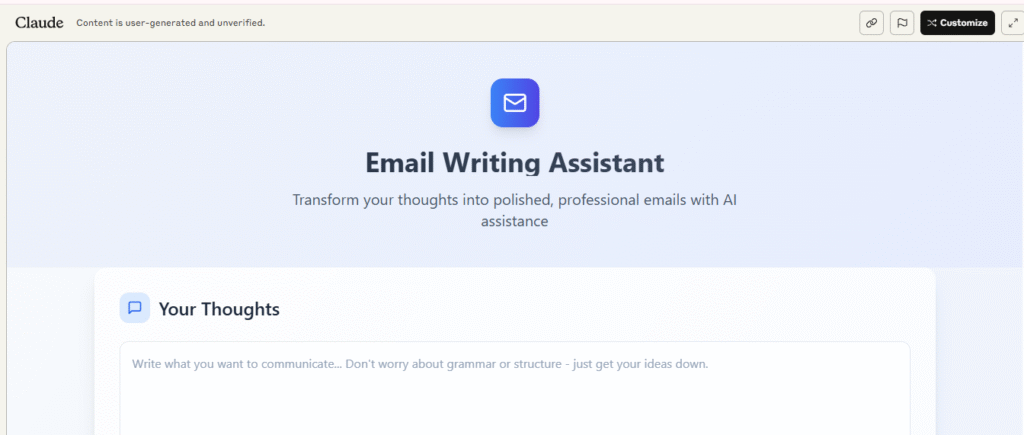
Claude’s integration with email workflows provides sophisticated reasoning capabilities for complex communication scenarios. The AI can analyze multi-party email threads and suggest responses that address all stakeholder concerns.
Claude’s nuanced understanding of context and implication makes it particularly valuable for sensitive business communications that require careful word choice and diplomatic approaches.
17. ChatGPT Email Extensions: The Versatile Communication Aid
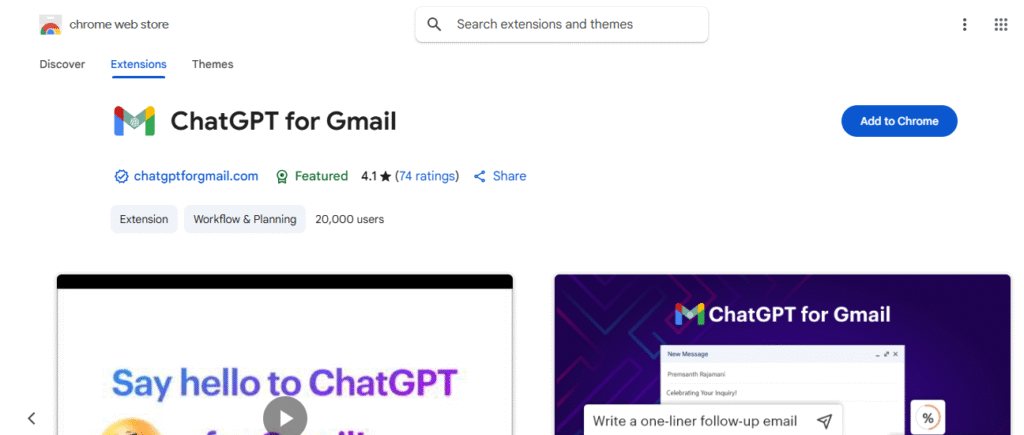
Various ChatGPT-based email extensions provide flexible AI assistance that adapts to different communication styles and business needs. These tools offer cost-effective AI capabilities for businesses exploring email automation.
18. Notion AI: The Integrated Workspace Solution
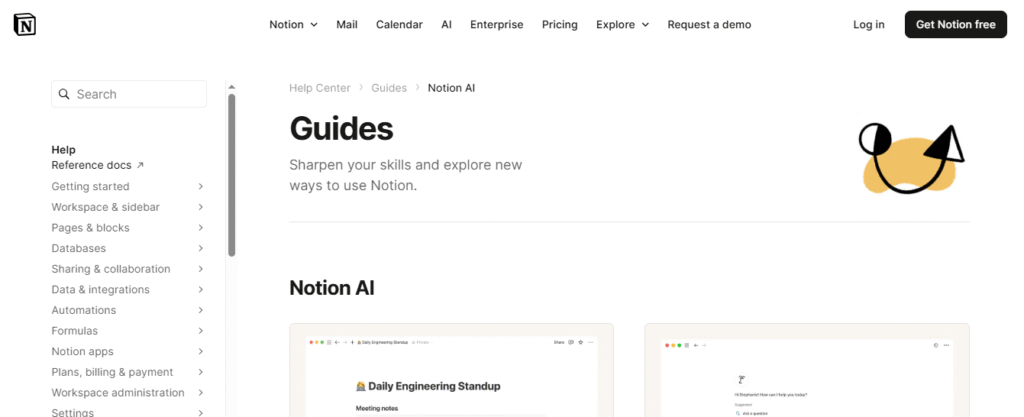
For businesses using Notion for project management, the platform’s AI email features create seamless workflows between email communication and project documentation.
This integration ensures email conversations automatically inform project status updates and team coordination efforts.
19. Zapier Email Parser with AI: The Automation Bridge
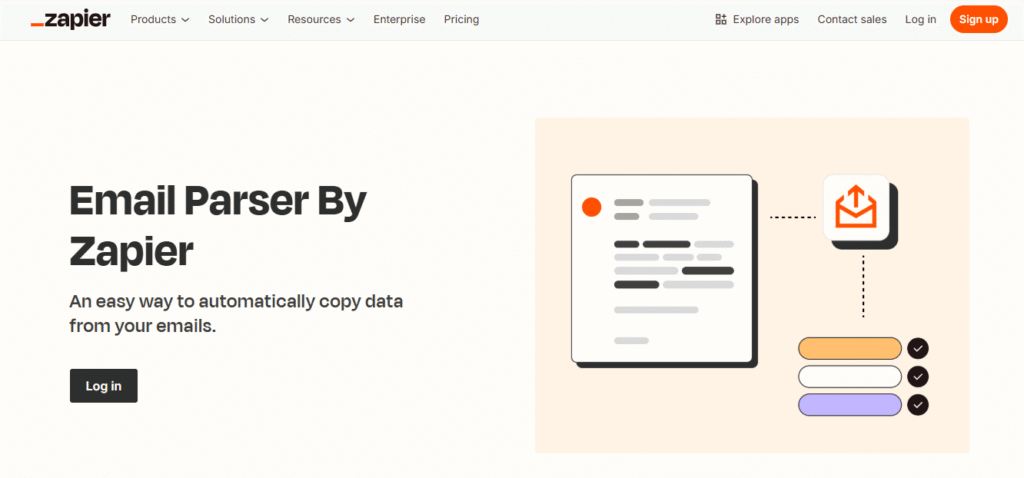
Zapier’s AI-powered email parsing extracts structured data from unstructured email content, enabling automated workflows that respond to email content dynamically.
This capability is valuable for businesses receiving structured information through email that needs to trigger specific business processes.
20. Microsoft Copilot: The Office 365 Integration
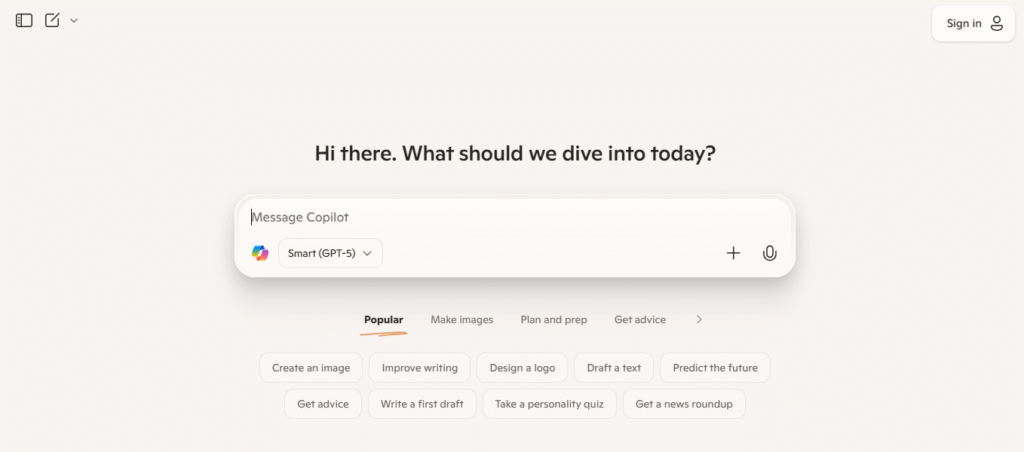
Microsoft’s AI assistant provides email intelligence within the Office 365 ecosystem, offering sophisticated analysis and automation capabilities for businesses committed to Microsoft tools.
Specialized Industry Solutions
21. LawGeex AI: The Legal Communication Specialist
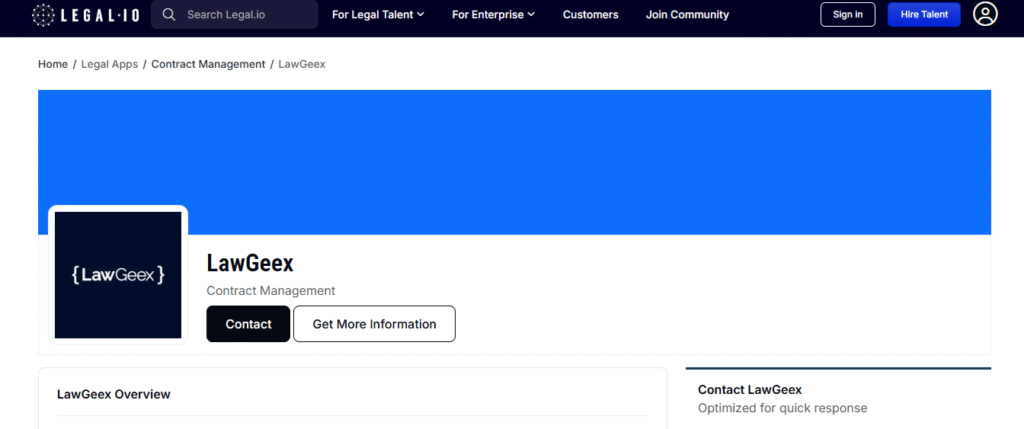
Designed for legal professionals, LawGeex’s AI understands legal terminology and communication requirements, ensuring emails meet professional standards and compliance needs.
22. Medical Email AI: The Healthcare Communication Solution
Specialized AI tools for healthcare providers ensure email communications meet HIPAA compliance requirements while maintaining efficiency and professional quality.
23. Financial Services AI: The Regulated Communication Tool
AI email assistants designed for financial services understand regulatory requirements and help ensure communications meet compliance standards while improving customer service quality.
24. Real Estate AI: The Client Relationship Manager
Real estate-focused AI email tools understand property terminology, market dynamics, and client communication patterns specific to real estate transactions.
25. E-commerce AI: The Customer Service Optimizer
AI email assistants designed for e-commerce businesses excel at handling customer inquiries, order status communications, and support ticket responses with industry-specific knowledge.
Strategic Implementation Guide: Choosing and Deploying AI Email Assistants
Selecting the right AI email assistant requires careful consideration of your business context, team capabilities, and strategic objectives. The wrong choice can create more complexity rather than reducing it.
Business Context Analysis
Company Size and Structure: Small businesses need different AI email capabilities than large enterprises. Startups benefit from cost-effective, easy-to-implement solutions, while established companies can leverage sophisticated platforms that integrate with existing business systems.
Communication Volume and Complexity: High-volume email environments require robust automation and filtering capabilities, while businesses with complex, relationship-focused communications need AI that understands nuance and context.
Industry Requirements: Regulated industries need AI tools that understand compliance requirements, while creative businesses benefit from AI that adapts to varied communication styles and client personalities.
Technical Infrastructure: Consider how AI email assistants integrate with existing business tools, customer relationship management systems, and workflow automation platforms.
Implementation Strategy Framework
Phase 1: Assessment and Planning
- Audit current email workflows and identify specific pain points
- Establish baseline metrics for email efficiency and effectiveness
- Define success criteria for AI implementation
- Select initial user group for pilot testing
Phase 2: Platform Selection and Testing
- Evaluate 3-5 AI email platforms based on business requirements
- Conduct structured testing with real business scenarios
- Gather feedback from different user types and use cases
- Analyze integration requirements and technical compatibility
Phase 3: Gradual Rollout and Optimization
- Begin with low-risk email scenarios and expand based on success
- Train team members on effective AI prompt engineering
- Establish guidelines for when to use AI assistance versus manual composition
- Monitor performance metrics and adjust implementation as needed
Phase 4: Advanced Features and Scaling
- Implement advanced automation and workflow integrations
- Develop custom templates and response frameworks
- Integrate AI email insights with broader business intelligence
- Optimize AI settings based on performance data and user feedback
Advanced AI Email Strategies for Business Growth
The most successful businesses don’t just use AI email assistants for basic automation – they leverage these tools to create competitive advantages and drive strategic business outcomes.
Relationship-Building Through Intelligent Communication
AI email assistants can help you maintain higher-quality relationships with larger numbers of contacts by ensuring consistent, personalized communication. This capability is particularly valuable for:
Client Relationship Management: AI can help maintain regular touchpoints with clients, ensuring no relationship goes neglected while personalizing communications based on client history and preferences.
Partnership Development: Automated yet personalized outreach to potential partners, collaborators, and industry connections can significantly expand your business network without consuming excessive time.
Customer Retention: AI-powered email sequences can nurture existing customers, identify expansion opportunities, and address potential churn risks before they impact revenue.
Sales Acceleration Through AI Optimization
Modern AI email assistants can significantly improve sales performance by optimizing every aspect of email-based selling:
Prospect Research Integration: AI tools can analyze prospect backgrounds and suggest personalized email approaches that resonate with specific individuals and companies.
Response Rate Optimization: Machine learning algorithms identify email elements that improve response rates in your specific industry and adjust suggestions accordingly.
Follow-Up Automation: Intelligent follow-up sequences adapt based on recipient behavior, ensuring persistent but respectful communication that maximizes conversion opportunities.
Content Marketing Integration
Smart businesses integrate AI email assistants with content marketing strategies to create cohesive multichannel campaigns:
Newsletter Automation: AI can transform blog posts, case studies, and other content into engaging newsletter formats that drive website traffic and engagement.
Content Distribution: Automated email sequences can distribute new content to segmented audiences based on interests, engagement history, and conversion potential.
Performance Analysis: AI analytics can identify which content types drive the most email engagement and website conversions, informing future content creation strategies.
The Business Case for AI Email Investment
Understanding the financial impact of AI email assistants helps justify investment and measure success. The benefits extend far beyond simple time savings to include strategic business advantages.
Quantifiable Productivity Improvements
Time Savings: Businesses typically see 50-70% reduction in email composition time, freeing up 6-8 hours per week for strategic activities.
Response Rate Improvements: AI-optimized emails often achieve 25-40% higher response rates compared to manually crafted messages.
Error Reduction: Grammar, tone, and formatting consistency improve dramatically, reducing miscommunications and professional embarrassment.
Follow-Up Consistency: Automated follow-up sequences ensure no opportunities are missed due to oversight or time constraints.
Strategic Business Advantages
Competitive Intelligence: AI email tools can analyze competitor communications and suggest strategies that differentiate your business approach.
Customer Insight Generation: Email analytics provide valuable insights into customer preferences, pain points, and buying behavior that inform broader business strategy.
Scalability Enablement: AI email assistance allows small teams to handle communication volumes that would otherwise require additional staff.
Professional Brand Enhancement: Consistent, high-quality email communication strengthens your business’s professional reputation and credibility.
Industry-Specific AI Email Applications
Different industries benefit from AI email assistance in unique ways. Understanding these applications helps you select tools that address your specific business challenges.
Professional Services and Consulting
Consultants and professional service providers can leverage AI email assistants for:
- Client onboarding sequences that guide new clients through service delivery processes
- Project status updates that keep stakeholders informed without manual effort
- Proposal follow-ups that maintain momentum in sales processes
- Expertise demonstration through informative, value-adding email content
E-commerce and Retail
Online businesses can use AI email tools for:
- Abandoned cart recovery sequences that re-engage potential customers
- Order status communications that improve customer experience
- Product recommendation emails based on purchase history and browsing behavior
- Customer service automation that resolves common inquiries instantly
For e-commerce businesses needing optimized websites to support their email marketing efforts, professional web development services can create conversion-focused online stores that maximize the ROI from email traffic.
SaaS and Technology Companies
Software businesses benefit from AI email assistance for:
- User onboarding sequences that improve product adoption rates
- Feature announcement communications that drive engagement with new capabilities
- Customer success outreach that identifies expansion opportunities
- Technical support automation that resolves common issues efficiently
Agency and Marketing Services
Marketing agencies can leverage AI email tools for:
- Client reporting automation that delivers consistent, professional updates
- New business development sequences that nurture prospects through long sales cycles
- Team coordination communications that keep projects on track
- Industry insight sharing that positions the agency as a thought leader
For agencies providing comprehensive digital marketing services, partnering with experienced web developers can offer additional value to clients who need website optimization to support their marketing campaigns.
Technical Considerations and Integration Requirements
Implementing AI email assistants successfully requires attention to technical details and integration requirements that ensure smooth operation within existing business systems.
Security and Privacy Considerations
Data Protection: Ensure AI email platforms comply with relevant privacy regulations like GDPR, CCPA, and industry-specific requirements.
Information Security: Evaluate how AI tools handle sensitive business information and whether data is stored securely and processed appropriately.
Access Controls: Implement appropriate user permissions and access controls to prevent unauthorized use of AI email capabilities.
Audit Trails: Maintain records of AI-generated communications for compliance and quality assurance purposes.
Integration Architecture
CRM Connectivity: AI email platforms should integrate seamlessly with customer relationship management systems to maintain comprehensive communication history.
Calendar Synchronization: Email scheduling and follow-up automation should coordinate with calendar systems to avoid conflicts and optimize timing.
Document Management: AI email tools should connect with document storage systems to automatically attach relevant files and access reference materials.
Analytics Integration: Email performance data should flow into broader business intelligence systems for comprehensive analysis and reporting.
Performance Monitoring and Optimization
Key Performance Indicators: Establish metrics that measure AI email assistant effectiveness beyond simple time savings.
A/B Testing Frameworks: Implement systematic testing of AI-generated content versus manual emails to validate performance improvements.
Continuous Learning: Regular review and optimization of AI settings based on performance data and user feedback.
ROI Measurement: Track how AI email improvements impact broader business metrics like customer acquisition, retention, and lifetime value.
Future Trends in AI Email Technology
Understanding emerging trends in AI email assistance helps you make forward-thinking decisions that will remain relevant as technology evolves.
Advanced Personalization Capabilities
Future AI email assistants will provide unprecedented personalization by analyzing:
- Recipient communication preferences based on historical interactions
- Optimal messaging strategies for different personality types and decision-making styles
- Cultural and contextual factors that influence communication effectiveness
- Real-time sentiment and mood indicators that inform appropriate communication approaches
Predictive Communication Intelligence
Emerging AI capabilities will predict:
- Optimal communication timing based on recipient schedules and attention patterns
- Message effectiveness before sending, with suggestions for improvement
- Relationship trajectory based on communication patterns and engagement trends
- Business opportunity identification through communication analysis and pattern recognition
Cross-Platform Communication Orchestration
Advanced AI email assistants will coordinate communications across multiple channels:
- Email, social media, and messaging app integration for cohesive communication strategies
- Automated channel selection based on recipient preferences and message urgency
- Cross-platform analytics that provide comprehensive communication effectiveness insights
- Unified relationship management across all digital communication channels
Building Your AI Email Assistant Strategy
Creating an effective AI email strategy requires more than just selecting the right tools – it requires developing systematic approaches that maximize AI capabilities while maintaining authentic business relationships.
Content Strategy Development
Develop frameworks for different types of business communications:
- Customer acquisition emails optimized for response rates and conversion
- Client relationship maintenance communications that build loyalty and satisfaction
- Team coordination messages that improve internal efficiency and collaboration
- Partnership development outreach that creates valuable business relationships
Training and Adoption Guidelines
Ensure successful AI email implementation through comprehensive training:
- Prompt engineering best practices that generate high-quality AI responses
- Quality control processes that maintain communication standards
- Escalation procedures for communications that require human intervention
- Performance measurement techniques that track AI effectiveness over time
Continuous Improvement Processes
Establish systematic approaches to optimizing AI email performance:
- Regular performance reviews that identify optimization opportunities
- User feedback collection that informs AI settings and process improvements
- Competitive analysis that ensures your AI email strategy remains cutting-edge
- Technology updates that take advantage of new AI capabilities as they become available
Website and Digital Infrastructure Optimization
Your AI email success depends heavily on having digital infrastructure that supports and amplifies email marketing efforts. Whether you’re driving traffic to product pages, service descriptions, contact forms, or content resources, your website must be optimized to convert email-generated traffic into business results.
This is particularly crucial for:
E-commerce Integration
- Product page optimization that converts email traffic into sales
- Shopping cart functionality that reduces abandonment rates
- Customer account systems that support personalized email marketing
- Mobile optimization ensuring emails drive mobile conversions effectively
Lead Generation Systems
- Landing page design optimized for email campaign traffic
- Contact form optimization that captures qualified leads efficiently
- Content gating strategies that build email lists while providing value
- Conversion tracking systems that measure email marketing ROI accurately
Professional Service Websites
- Service page optimization that clearly communicates value propositions
- Case study presentations that build credibility and trust
- Contact and consultation booking systems that convert email interest into business opportunities
- Resource libraries that position your business as an industry authority
For businesses that need professional website development to support their AI email marketing strategy, partnering with experienced web developers ensures your digital infrastructure can capitalize on improved email performance.
Measuring AI Email Assistant Success
Implementing AI email assistants without proper measurement frameworks means missing opportunities for optimization and strategic improvement.
Primary Success Metrics
Efficiency Indicators:
- Time spent on email management (target: 50-70% reduction)
- Email response speed (target: 80% faster responses)
- Email composition time (target: 60% reduction)
- Follow-up consistency (target: 95% completion rate)
Quality Measurements:
- Email response rates (target: 25-40% improvement)
- Customer satisfaction scores for email communications
- Error reduction in grammar, tone, and formatting
- Brand consistency across all email communications
Business Impact Metrics:
- Customer acquisition cost reduction through improved email marketing
- Sales cycle acceleration through optimized communication
- Customer retention improvement through better relationship management
- Revenue attribution to email marketing activities
Advanced Analytics Applications
Predictive Performance Modeling: Use AI email data to predict which communication strategies will be most effective for different customer segments and business scenarios.
Competitive Benchmarking: Compare your AI-enhanced email performance against industry standards and competitor communications.
Customer Journey Optimization: Analyze how AI email improvements impact overall customer experience and business relationship development.
ROI Attribution: Track how AI email investments contribute to broader business objectives and financial performance.
Conclusion: Transforming Business Communication Through AI
The businesses that thrive in 2025 and beyond will be those that harness artificial intelligence to enhance human capability rather than replace it. AI email assistants represent one of the most practical and immediately beneficial applications of AI technology for business operations.
The platforms and strategies outlined in this guide provide roadmaps for transforming email from a productivity drain into a business growth engine. Whether you’re looking to save time, improve communication quality, enhance customer relationships, or drive revenue through better email marketing, AI email assistants offer unprecedented opportunities for improvement.
Remember that successful AI implementation requires more than just selecting the right tools – it requires strategic thinking about how these tools integrate with your broader business objectives and digital infrastructure. Take time to evaluate your specific needs, test multiple solutions, and implement gradually to ensure maximum success.
The future of business communication is AI-enhanced, personalized, and strategically optimized. By embracing these technologies thoughtfully and implementing them systematically, you can create communication advantages that drive measurable business growth while freeing up time and mental energy for the strategic thinking that truly differentiates successful businesses.
Your email doesn’t have to be a burden. With the right AI assistance and strategic implementation, it can become one of your most powerful business tools.

